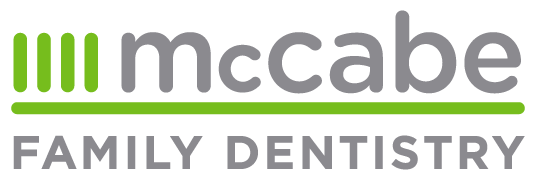Have you ever wondered what your dental hygienist is doing in your mouth? If we brush and floss our teeth every day, what’s the benefit?
A dental hygiene visit is about more than shining up your teeth. While a polished smile is certainly a great benefit, the cornerstone of a dental hygiene appointment is removing the calculus (or tartar) build-up that accumulates on the teeth. When we eat, leftover food and bacterial debris coats the tooth surface. This is called plaque, and it can be removed at home with a toothbrush or floss.
Over time as plaque sits on the tooth surface, it picks up minerals from the saliva and hardens into calculus. This process can start in as little as 4 hours, so even an all-star brusher and flosser will accumulate a small amount of calculus on their teeth each day. Calculus locks into the tooth surface and can’t be brushed or flossed away, which is why it needs to be physically removed with dental instruments.
As calculus accumulates on the teeth, it creates a cozy home for bacteria to dwell in. The hard surface protects them from the harsh environment of the mouth – they aren’t fazed when the toothbrush whizzes by or when the tongue is rubbing away food debris. And over time, as more plaque builds on top of the calculus, it keeps hardening and gets larger and larger, forming a big luxury apartment complex for bacteria.
Now, not all bacteria are bad – many are helpful! The mouth contains many healthy bacteria that help us digest the food we eat. However, there are a number of unwelcome bacteria that also live in our mouths that can cause cavities, gingivitis, and periodontal disease.
Unfortunately, it is these unhelpful bacteria that thrive in the depths of calculus build-up. So as the calculus grows, gingivitis develops as the bacteria erode the tips of the gum tissue, creating red inflammation and sore bleeding gums. In some people, the bacterial calculus will create enough inflammation to degrade the tissues and bone that support the teeth (called periodontitis). As the amount of bone supporting the teeth reduces, the gums may develop periodontal pockets that trap more plaque or recede, causing the teeth to become loose.
Removing the calculus eliminates the biggest source of unhelpful bacteria. Within days of a hygiene appointment, swollen gums start to shrink back to their appropriate size and bleeding reduces significantly. When combined with good home care, plaque and calculus levels can be kept low enough to prevent inflammation, cavities, and tooth loss.
So when you come in for your dental cleaning, you aren’t only leaving with a gleaming smile. You also leave with happy, healthy gums that will help you keep your teeth! Plus you can spend an hour catching up on Netflix!

